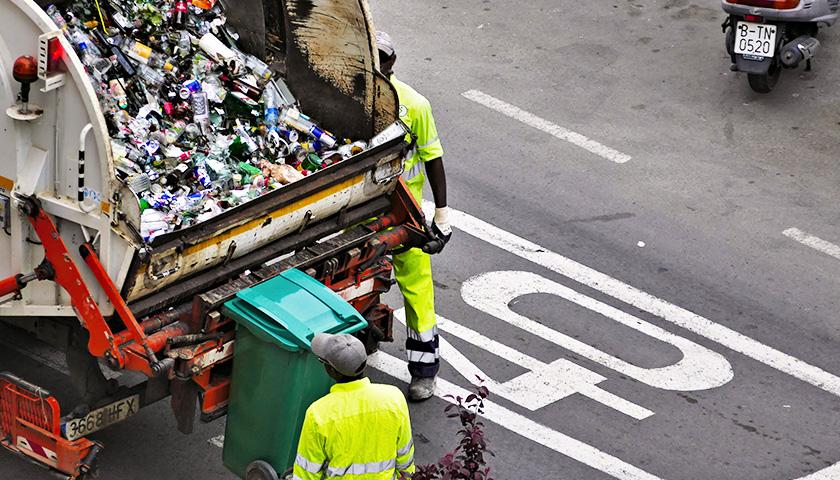by Christian Wade
Connecticut trucks hundreds of thousands of tons of solid waste to landfills in other states, which costs the state and taxpayers millions of dollars a year.
Gov. Ned Lamont has pitched a plan to reduce the amount of waste going to other states by increasing recycling and requiring manufacturers to reduce packaging materials, but the effort has faced pushback from the solid waste industry and some lawmakers.
The legislation, which was approved by the Legislature’s Environmental Committee on Friday, calls for removing more food from the waste stream and requiring manufacturers to expand use of packaging with greater recycled content, among other changes.
“Connecticut cannot continue with the business-as-usual approach to materials management,” Katie Dykes, commissioner of Connecticut’s Department of Energy and Environmental Protection, said in testimony. “Significant change is required to maintain reasonable costs for residents and municipalities, prioritize reduction and diversion consistent with the statutory waste management hierarchy, and minimize the environmental impact from the disposal of the waste generated in Connecticut.”
But before advancing the bill, the committee scaled back the legislation from Lamont’s original plan amid opposition from the industry and some local governments.
Lamont had proposed a disposal fee of $5 on every ton of municipal solid waste shipped to out of state, but lawmakers pulled that provision from the bill they advanced.
They also stripped a provision calling for implementation of “extended producer responsibility” law that sought to shift costs for recycling from municipalities to manufacturers.
The plan would, however, require municipalities to separate and collect food scraps beginning in 2028, and to send these materials to an authorized facility to be processed “in a manner that promotes a beneficial use.” Food scraps account for more than 20% of Connecticut’s waste stream, according to state solid waste data.
State environmental officials say Connecticut already has the capacity to divert more than half of the 500,000 tons of food waste it ships annually to out-of-state landfills or burned in one of four waste-to-energy plants. They want to encourage more companies to convert food waste into animal feed, energy and other beneficial uses.
But critics say other provisions of the plan would drive up costs for packaging and waste hauling, which will ultimately be passed along to the state’s consumers.
The Connecticut Business and Industry Association said the bill will lead to increased costs to consumers and “disproportionately impact lower income households” across the state. The business group said the cost to collect and process recycling has increased by 700%, which is mostly absorbed by consumers.
“If the cost of packaged goods increases by only 6%, this results in an increase of over $700 per year for an average household family of four,” Ashley Zane, a lobbyist for the business group, told the panel. “When this is extrapolated to the state, this leads to an increased cost of over $840 million to Connecticut households.”
“Connecticut is a top five state in the country and private haulers and materials recovery facilities have invested millions of their own dollars on the best equipment and technology to accomplish this goal,” he said. “They have created countless jobs and contributed to the state’s economic health as well as the state’s ecological health.”
The solid waste legislation must still be approved by the state Assembly and Senate before heading to Lamont’s desk for consideration.
– – –
Christian Wade is a contributor to The Center Square.
Photo “Trash Truck” by zibik.





